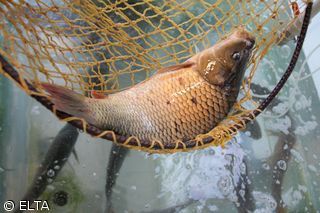OLAF and Europol strengthen cooperation in combating financial crime
Published:
9 April 2004 y., Friday
OLAF - The European Anti-fraud Office - and Europol - the European Police Office - shall sign an administrative arrangement putting in place the modalities for their practical co-operation.
Mr Jürgen Storbeck, Europol's Director and Mr Franz-Hermann Brüner, Director General of OLAF shall tomorrow, in Brussels, sign an administrative arrangement regarding co-operation between Europol and OLAF in order to fight fraud, corruption or any other criminal offence or illegal activity in the framework of international organised crime affecting the European Community's financial interests.
In order to step up the fight against fraud, corruption and any other illegal activity affecting the financial interests of the European Community, the European Anti-Fraud Office established by Commission Decision 1999/352/EC, ECSC, Euratom exercises the powers of investigation conferred on the Commission by the Community rules and Regulations and agreements in force in those areas.
The Office provides the Member States with assistance from the Commission in organising close and regular cooperation between their competent authorities in order to coordinate their activities for the purpose of protecting the European Community's financial interests against fraud.
The Treaty of the European Union mentions (art. 29 and 30) Europol as an important instrument of the Union's efforts to prevent and fight against organised crime in order to achieve the objective of providing its citizens with a high level of safety within an area of freedom, security and justice. Europol aims to improve the effectiveness and co operation between the competent authorities of the Member States in preventing and combating serious international organised crime. The mission of Europol is to make a significant contribution to the European Union's law enforcement action against organised crime, with an emphasis on targeting criminal organisations.
Based in The Hague, The Netherlands, Europol started limited operations on 3 January 1994 in the form of the Europol Drugs Unit (EDU) fighting against drugs. The Europol Convention was ratified by all Member States and came into force on 1 October 1998. Following a number of legal acts related to the Convention, Europol commenced its full activities on 1 July 1999.
Šaltinis:
europa.eu.int
Copying, publishing, announcing any information from the News.lt portal without written permission of News.lt editorial office is prohibited.
The most popular articles
 The European Commission has decided to grant an extension of the deadline for the divestment of Fortis' corporate banking business, consisting of Hollandsche Bank Unie N.V. (HBU), two corporate client departments, 13 "Advieskantoren" and ABN AMRO's Dutch factoring activities to Deutsche Bank.
more »
The European Commission has decided to grant an extension of the deadline for the divestment of Fortis' corporate banking business, consisting of Hollandsche Bank Unie N.V. (HBU), two corporate client departments, 13 "Advieskantoren" and ABN AMRO's Dutch factoring activities to Deutsche Bank.
more »
 MEPs will vote on an emergency plan to help the crisis-stricken sector dairy sector on Thursday after the Agriculture Committee approved the Commission's proposal on Monday evening in Strasbourg.
more »
MEPs will vote on an emergency plan to help the crisis-stricken sector dairy sector on Thursday after the Agriculture Committee approved the Commission's proposal on Monday evening in Strasbourg.
more »
 The EBRD is boosting competition in the Montenegrin retail sector with a loan to expand the supermarket network of one of the leading retailers in the country.
more »
The EBRD is boosting competition in the Montenegrin retail sector with a loan to expand the supermarket network of one of the leading retailers in the country.
more »
 Redmond, Wash. — Oct. 16, 2009— On Oct. 19, Microsoft CEO Steve Ballmer heads to the sold-out Microsoft sharepoint Conference in Las Vegas where he will address more than 7,000 sharepoint customers, partners and developers.
more »
Redmond, Wash. — Oct. 16, 2009— On Oct. 19, Microsoft CEO Steve Ballmer heads to the sold-out Microsoft sharepoint Conference in Las Vegas where he will address more than 7,000 sharepoint customers, partners and developers.
more »
 Proposals tabled for collaboration on sea surveillance, bigger EU role in global maritime affairs and sustainable fishing.
more »
Proposals tabled for collaboration on sea surveillance, bigger EU role in global maritime affairs and sustainable fishing.
more »
 $50 million financing package for agricultural commodities operator.
more »
$50 million financing package for agricultural commodities operator.
more »
 Seeking to increase sheet-metal production volumes, Stansefabrikken decided to move all company’s production from Lillesand (Norway) to Stansefabrikken’s successfully operating factories in Lithuania.
more »
Seeking to increase sheet-metal production volumes, Stansefabrikken decided to move all company’s production from Lillesand (Norway) to Stansefabrikken’s successfully operating factories in Lithuania.
more »
 The European Economic and Social Committee (EESC) and the European Commission Representation in Finland jointly organise a conference in Helsinki on 22 and 23 October on "The Baltic Sea Region: the best place to work and do business".
more »
The European Economic and Social Committee (EESC) and the European Commission Representation in Finland jointly organise a conference in Helsinki on 22 and 23 October on "The Baltic Sea Region: the best place to work and do business".
more »
 Why did economy rise drastically turn into painful decline and what price will every of us have to pay for that?
more »
Why did economy rise drastically turn into painful decline and what price will every of us have to pay for that?
more »
 The economies of central and eastern Europe are expected to contract by an average of 6.3 per cent in 2009 following steep output declines in the first half of the year.
more »
The economies of central and eastern Europe are expected to contract by an average of 6.3 per cent in 2009 following steep output declines in the first half of the year.
more »